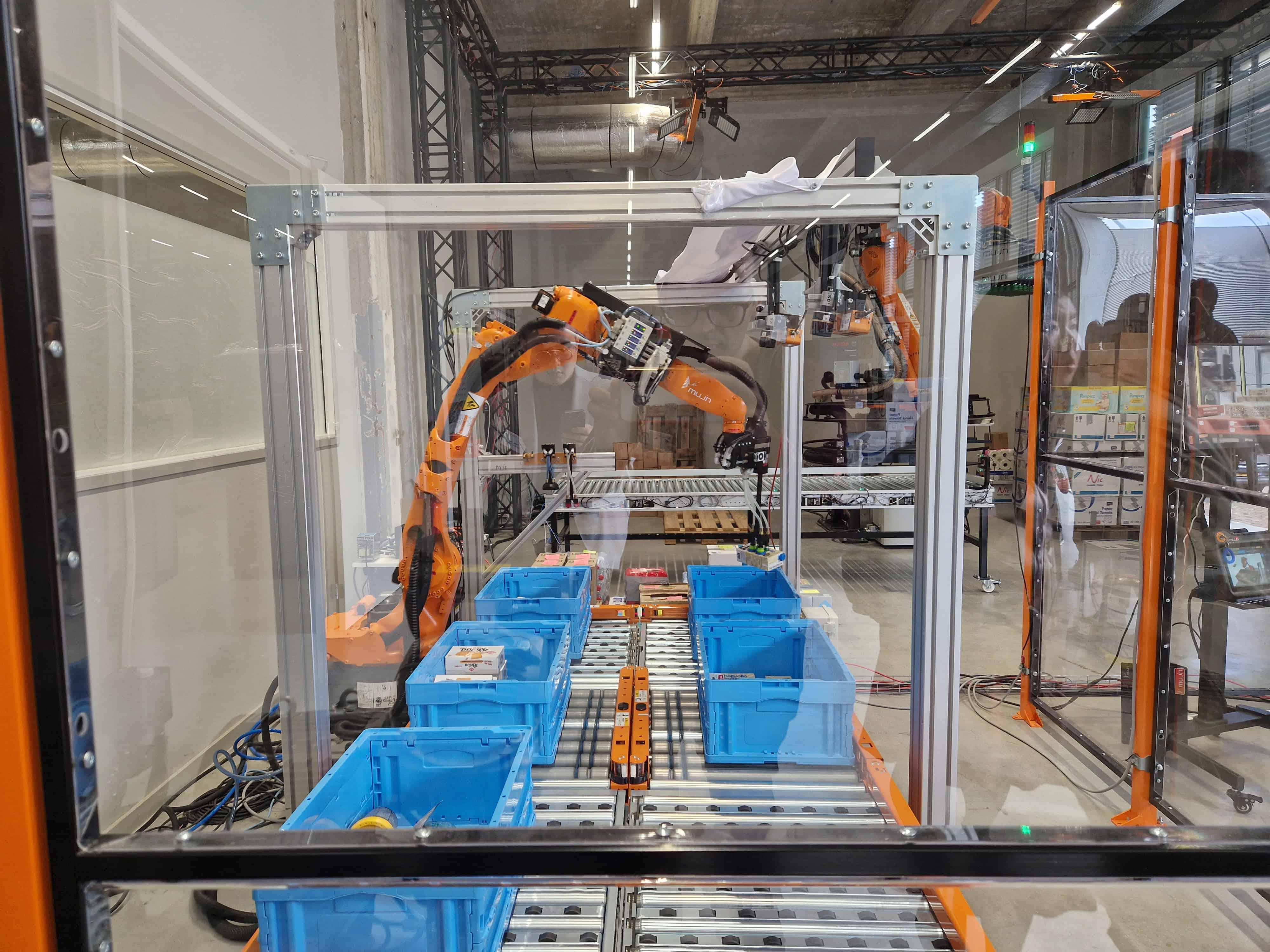
A hospital in the province of Bergamo in Italy is putting twenty-one robots to work that process a COVID-19 swab test every 28 seconds. Every day, 5000 PCR tests are automatically processed this way. The method is fairly new. The traditional process of processing (molecular) coronavirus tests is slow and not always reliable. Employees perform the same tasks over and over again and often enter the results manually.
This is the future of laboratory automation.” Fred Parietti, president of Multiply Labs.
The Italian hospital, by contrast, uses advanced robots for handling fluids and three qPCR machines, which are overseen by cloud-based control software. Each patient sample is automatically tracked via its barcode. The system generates and stores digital records in order to comply with regulatory standards. “This is the future of laboratory automation,” says Fred Parietti, president of Multiply Labs. He is one of the initiators behind the project. His company makes use of robotics in healthcare. Parietti founded the company with another Italian in San Francisco.
Open source
The initiative, which is dubbed COVmatic, involves the hospital, university staff, Parietti’s company and local entrepreneurs working together on a nonprofit basis in Italy. Sponsors initially raised €400,000 to purchase the hardware. That it really isn’t just about free publicity is shown by the fact that the method and procedure are open source and available for free on COVmatic’s website.
Scaling up
COVmatic still has a future even once the corona pandemic is eventually over. It is easily scalable, according to the initiators, as it lends itself to analyses that feature a similar process. The new laboratory concept has provided an opportunity to experiment with new work methods since it came into operation six months ago. The hospital concerned has now hired a number of engineers to work alongside biologists.
Bergamo
COVmatic started in a hospital in Calcinate, which is 15 kilometers from Bergamo. This is the area that was severely affected by the corona pandemic a year ago. The images of a column of military trucks carrying away hundreds of coffins from Bergamo in March 2020, because the local crematoriums could not cope, made headlines around the world. At least 3,000 people died in and around Bergamo during the first corona wave.
Read more about how robots should be raised here.








